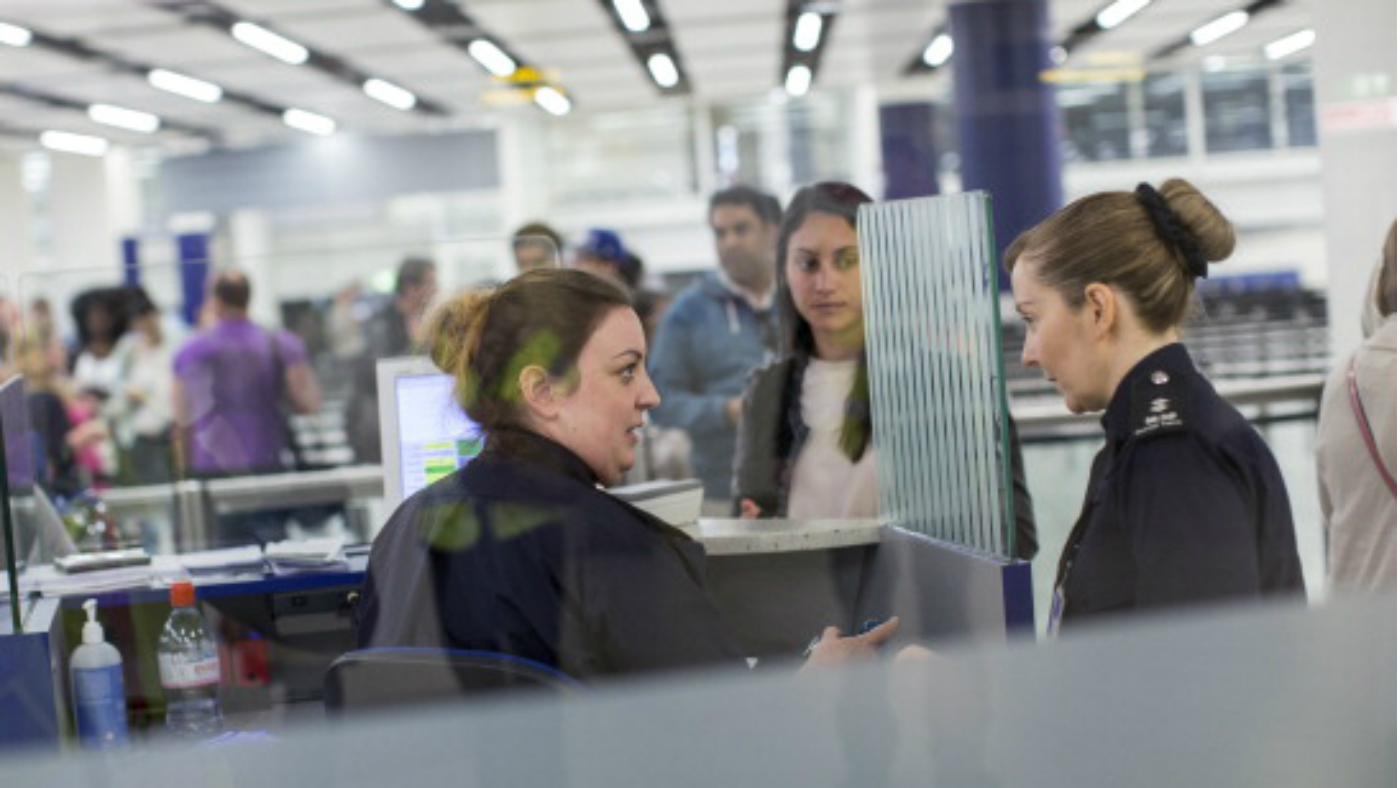Conservative manifesto 2017: Migration cap will 'definitely' appear
Theresa May reportedly ready to commit to net target of 'tens of thousands' each year

A free daily email with the biggest news stories of the day – and the best features from TheWeek.com
You are now subscribed
Your newsletter sign-up was successful
Theresa May will push ahead with a controversial policy of reducing net migration to the UK to the tens of thousands if the Tories are re-elected next month, say reports.
At the moment, net migration to the UK - the overall increase in population after accounting for those emigrating - is estimated at around 273,000 a year.
Tory manifestos since 2010 have pledged to reduce this figure to the "tens of thousands", but Home Secretary Amber Rudd has so far refused to confirm or deny if it will appear in this year's policy document.
The Week
Escape your echo chamber. Get the facts behind the news, plus analysis from multiple perspectives.

Sign up for The Week's Free Newsletters
From our morning news briefing to a weekly Good News Newsletter, get the best of The Week delivered directly to your inbox.
From our morning news briefing to a weekly Good News Newsletter, get the best of The Week delivered directly to your inbox.
Speaking to BBC Radio 5 yesterday, she said it was "too early to say" if the Prime Minister intended to push forward with a migration cap.
However, the BBC claims it has it on good authority that the pledge will "definitely" make the cut when the manifesto appears this week.
Promises to cut migration have always been popular with a wide swathe of the electorate, but the economic practicalities have prevented successive governments from making headway.
Dr Carlos Vargas-Silva, acting director of the Migration Observatory at the University of Oxford, told the BBC it would be a particular challenge to cut the number of non-EU migrants, the majority of whom are "highly-skilled workers, students and relatives of those already lawfully in the UK".
A free daily email with the biggest news stories of the day – and the best features from TheWeek.com
The Confederation of British Industry (CBI) also expressed concern about setting an arbitrary target and called for immigration policies to be set according to economic need rather than political expediency.
Carolyn Fairbairn, CBI director-general, said the economy relied on a flexible labour market currently provided by freedom of movement with the EU and that the British workforce alone could not meet this demand.
"We are a services based-economy and people are our currency," she told the Daily Telegraph.
Any future immigration model must be "need-based", she added, and focussed on giving the economy "the skills and people that we need for our business".
Ukip have attempted to use the government's reluctance to publicly commit to the migration cap to appeal to disappointed Conservative voters.
Party leader Paul Nuttall vowed they would institute a hardline "one in, out one" policy for entry to the UK, with the aim of reducing net migration to zero over a five-year period.
"Balanced migration" would mean "roughly 300,000 talented people can come to Britain in a typical year", he said, adding: "That is a rational approach to immigration rather than the uncontrolled mass immigration we have seen under Labour and the Tories."
-
 Why is the Trump administration talking about ‘Western civilization’?
Why is the Trump administration talking about ‘Western civilization’?Talking Points Rubio says Europe, US bonded by religion and ancestry
-
 Quentin Deranque: a student’s death energizes the French far right
Quentin Deranque: a student’s death energizes the French far rightIN THE SPOTLIGHT Reactions to the violent killing of an ultra-conservative activist offer a glimpse at the culture wars roiling France ahead of next year’s elections.
-
 Secured vs. unsecured loans: how do they differ and which is better?
Secured vs. unsecured loans: how do they differ and which is better?the explainer They are distinguished by the level of risk and the inclusion of collateral
-
 ICE eyes new targets post-Minnesota retreat
ICE eyes new targets post-Minnesota retreatIn the Spotlight Several cities are reportedly on ICE’s list for immigration crackdowns
-
 How corrupt is the UK?
How corrupt is the UK?The Explainer Decline in standards ‘risks becoming a defining feature of our political culture’ as Britain falls to lowest ever score on global index
-
 How did ‘wine moms’ become the face of anti-ICE protests?
How did ‘wine moms’ become the face of anti-ICE protests?Today’s Big Question Women lead the resistance to Trump’s deportations
-
 The UK expands its Hong Kong visa scheme
The UK expands its Hong Kong visa schemeThe Explainer Around 26,000 additional arrivals expected in the UK as government widens eligibility in response to crackdown on rights in former colony
-
 How are Democrats trying to reform ICE?
How are Democrats trying to reform ICE?Today’s Big Question Democratic leadership has put forth several demands for the agency
-
 Minnesota’s legal system buckles under Trump’s ICE surge
Minnesota’s legal system buckles under Trump’s ICE surgeIN THE SPOTLIGHT Mass arrests and chaotic administration have pushed Twin Cities courts to the brink as lawyers and judges alike struggle to keep pace with ICE’s activity
-
 700 ICE agents exit Twin Cities amid legal chaos
700 ICE agents exit Twin Cities amid legal chaosSpeed Read More than 2,000 agents remain in the region
-
 House ends brief shutdown, tees up ICE showdown
House ends brief shutdown, tees up ICE showdownSpeed Read Numerous Democrats joined most Republicans in voting yes